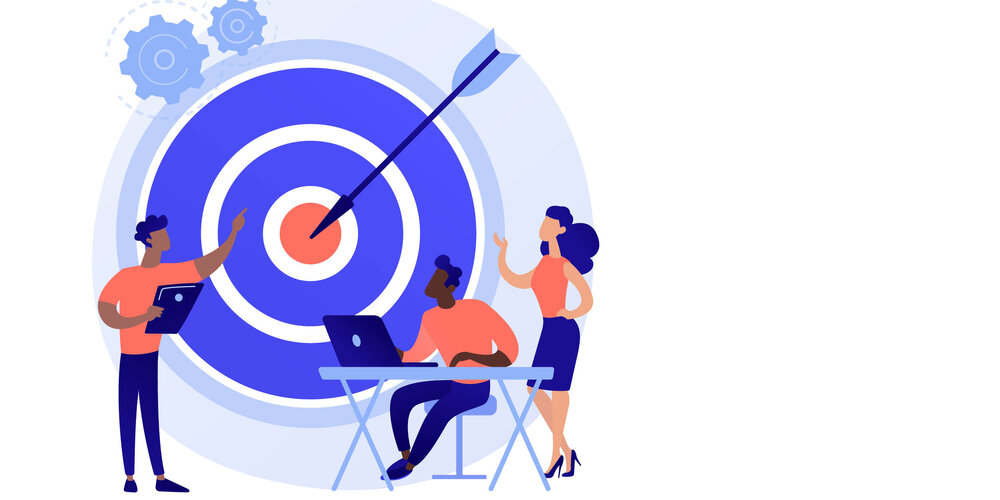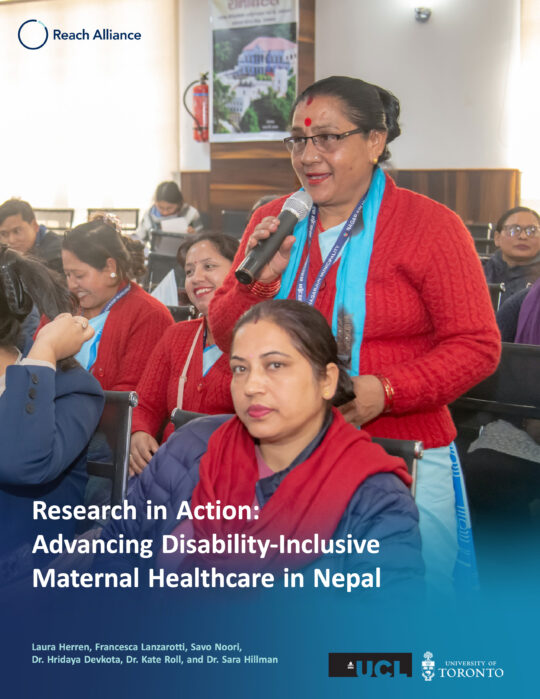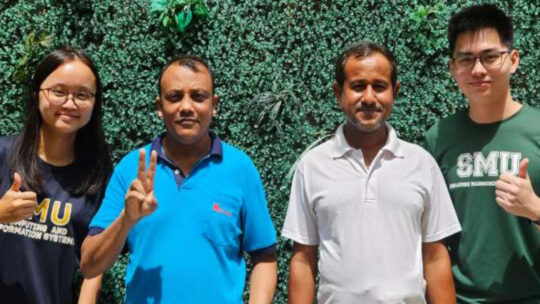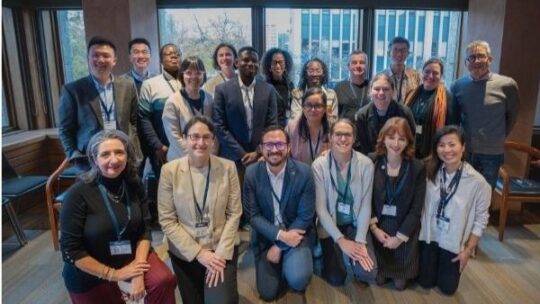News
Coaching High-performing Teams
The Reach Alliance’s panoply of coaching resources is building healthy, innovative teams

Much like a sports team, the success of the Reach Alliance is built on teamwork – collaboration and communication within and between Reach staff, faculty mentors and researchers. Students join Reach from across all academic disciplines and from undergraduate and graduate degree programs, and then must work together to plan, execute and present an innovative and rigorous research project.
Yet many Reach Alliance researchers do not have in-depth experience working on a team at this level. Each team member brings a unique set of skills, training and experience, and they must share with and learn from one another at every step along the way. In order to ensure that they do this well, and to make doing so integral to their experience, we offer a rich program of ongoing professional performance coaching.
The coaching program is not just intended to ‘get them through.’ Learning to collaborate in lasting and meaningful ways is a key ingredient of the Reach program, and the performance coaching is meant to build a skillset that students can lean on throughout their educational and professional careers. It also aims to equip them with the tools to turn their Reach experience into an approach to, and techniques for, identifying and succeeding in their next steps in life – graduate work, employment, network-building.
“The Reach program is rigorous, and demands accelerated acquisition of skills and knowledge,” says Jason Sealy, Reach’s head coaching consultant. “Along with supporting the collaboration and communication foundational to the program, team coaching supports researchers in the creation of an environment where they feel safe to step out of their comfort zones and to implement new learnings and accelerate growth.”
Coaching the Team
The Reach Alliance holds to the principles of its Equity, Diversity & Inclusion Charter which includes commitments to advance a culture of leadership that is bold, empathetic, humble, shared, transparent, inclusive and transformational, and to promote and strengthen inclusive, healthy and safe working and learning environments. The approach to coaching is borne of these commitments.
Each team of researchers is paired with a professional team performance coach at the beginning of the Reach Alliance experience, with whom they meet regularly to share best practices and receive feedback. The aim is to support them as they build a balanced, safe, collaborative and high-performing team in which every member is valued, respected and productive. They learn the tools for fostering an optimal team culture, and build their capacity for giving and receiving feedback; project management; debriefing and process improvement; meeting organization and facilitation; leadership and delegation; and consensus building.
Working with professional team coaches brings professional results. It also empowers Reach Alliance faculty mentors to support and guide the teams on research techniques and the issues on which they are experts, rather than as team managers.
“Coaching support helped me realize and reflect upon both the skills I brought to my team and that I was developing while working on my Reach project,” says Sana Najafi, Reach researcher 2019-20. “As an individual, I recognized new strengths in myself which I have since been able to translate to other opportunities and articulate in recruitment processes for various professional endeavours. As a team, we gained insight on how to complement one another’s work ethic and approach, enhancing our communication and transparency with each other – which became an essential tool as we transitioned to virtual fieldwork and research. “
Tracking team performance and culture in meaningful ways
This year, the Reach Alliance has started working with innerlogic, a digital platform devoted to the optimization of team culture and leadership. This online resource supports the coaching experience by anchoring team health, collaboration and understanding in real-time data, and by tracking analytics and trends. Teams and coaches can log – and so monitor and resolve – team dynamics that might otherwise lead to imbalance, burnout or discontent, and can watch their successes and strengths solidify and grow. The process is fully transparent and is supported by ongoing feedback from coaches, faculty mentors and researchers.
Moving forward
The Reach Alliance is dedicated to equipping the next generation of global leaders, and core to the program is the opportunity for students to practice skills that accelerate their growth. In keeping with this commitment, Reach has also recently added an offboarding component to the program, whereby researchers receive career exploration support, in their Reach teams and as individuals.
Conversations with Reach alum brought to our attention the challenges of launching or transitioning to a new career or degree, and we wanted to explore how the skills and tools that Reach emphasizes so strongly during the program could be applied to the exciting – but daunting and complex – next phase of researchers’ professional growth. The offboarding sessions are designed specifically for Reach researchers and aim to show them how to translate the skills they built during their Reach experience into a talent for networking, interviewing and career-planning. The sessions look at how to frame a personal narrative, make your story memorable, and communicate your values and unique skills and experiences.
The goal of working with team performance coaches is to ensure Reach researchers leave the program with a thorough understanding of team culture and equipped to be global leaders in high-performing teams. We want every Reach researcher to leave feeling excited to lead, collaborate and initiate. Our panoply of coaching tools builds individual confidence and team strength – tools that researchers can carry forward into a lifetime of leadership, change, collaboration… and reach.


